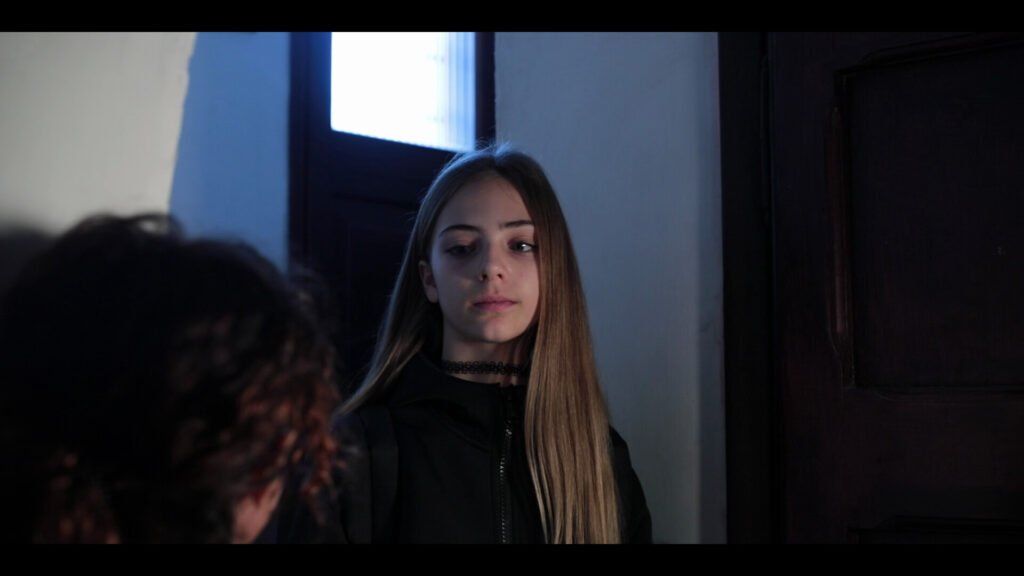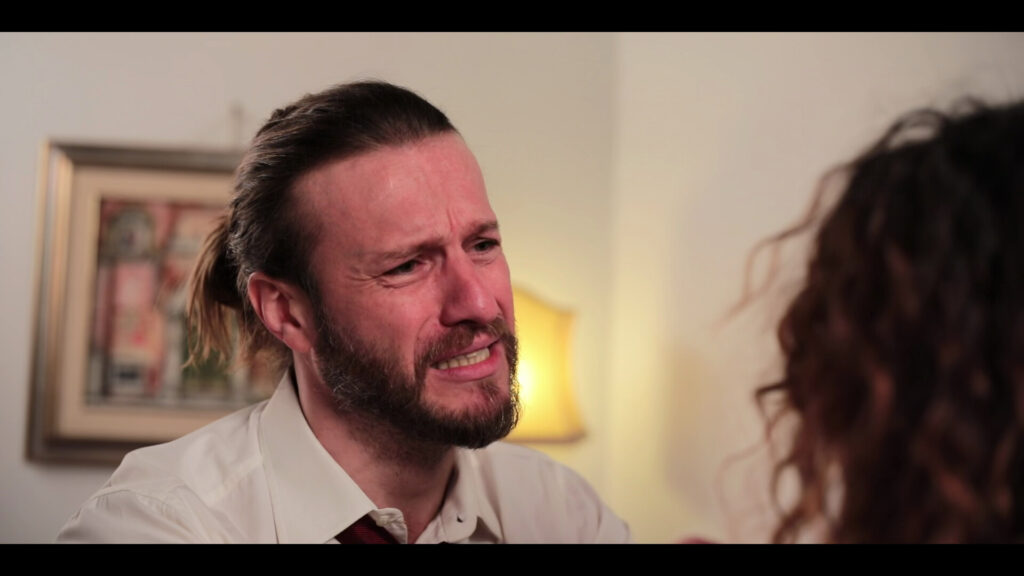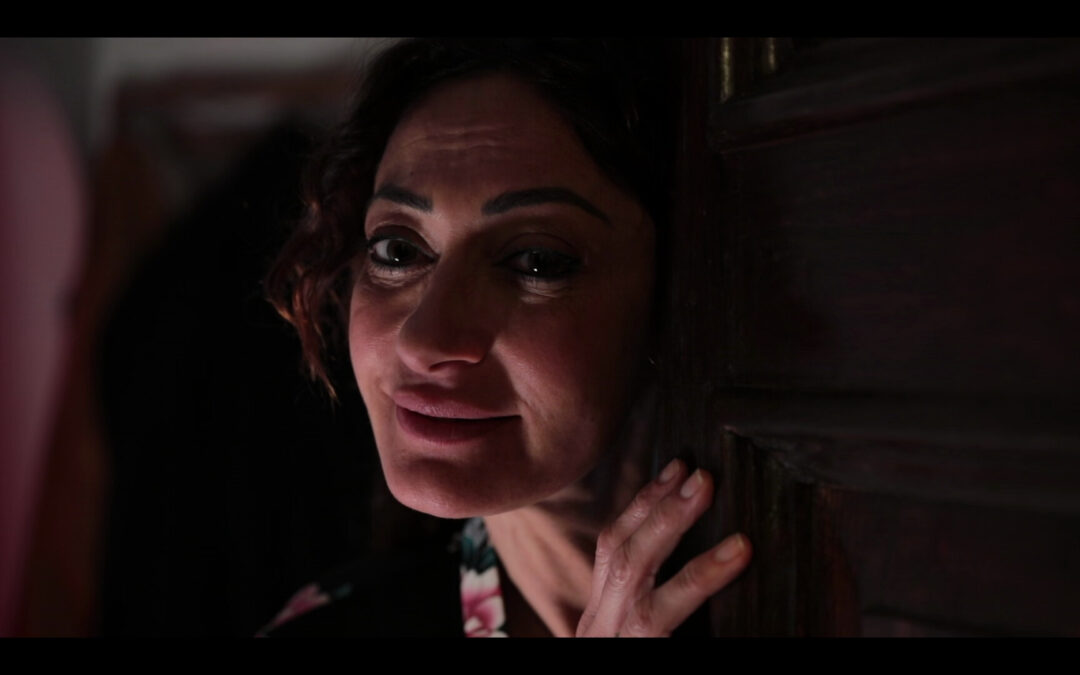By Ryan Dailey
Angelica is a short film about something as mundane as picking up a child from school, only director Gianni Carbotti puts an almost M.Night Shyamalan type twist on the topic.
A professional couple played by Riccardo Frezza and Nunzia Plastino sit together at the dining room table, Their interactions conveying that, while the couple definitely love one another, there is an underlying sadness haunting the two, although the audience does not quite know what it could be. The mother asks the father to pick their daughter Angelica, played by Giulia e Rebecca De Licio, up from school at four.
The short film then focuses on the mother as she goes about her daily routine, work phone calls and a light lunch. All the while, the mother is focused on pictures of Angelica and the ever ticking clock taunting her from the wall. Nunzia Plastino does a great job of portraying a person suffering from crippling anxiety.


The clock eventually reaches four o’clock and there is no sign of the father nor Angelica. The mother, exasperated, rises from her chair and leaves the house to pick up her daughter.
The father finally arrives home at eight o’clock that evening, and the mother gives him what for.
This is where the genius of the short comes into play. As the audience, one might think this is a drama about infidelity or just a story about a couple falling apart after the mother experienced some type of medical trauma. Carbotti swerves the audience with the afore-mentioned twist.
Angelica is a brilliant study of how individuals deal with loss in their own ways. Through powerful performances and brilliant direction and cinematography, Carbotti delivers to us something that leaves us clamoring for more. This group of filmmakers were able to tell a gripping story with characters that you actually get invested in, all in the space of twelve minutes. Perhaps Western filmmakers could learn a lesson from the team from Angelica. This is storytelling. This is filmmaking. This is the type of film that should be included in the curriculum of film study courses. Much like Argento proved in the 1970’s, Carbotti has proven in the modern day that Italian filmmakers can do it as good, and in cases like this, better than anyone.

